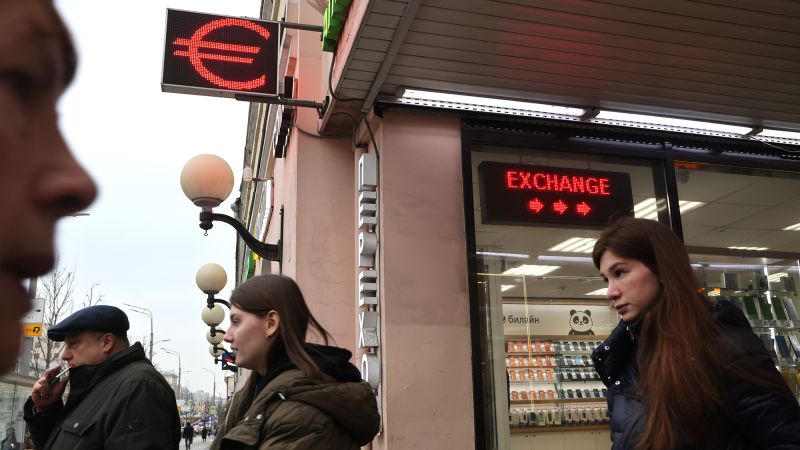In a recent development, new US sanctions against Russia have led to an immediate suspension of trading in dollars and euros on the Moscow Exchange, the country’s leading financial marketplace.
The exchange, also known as MOEX, and the Russian central bank issued statements swiftly after Washington announced the sanctions, which are aimed at cutting the flow of money and goods to support Moscow’s activities in Ukraine.
In response to the sanctions, the central bank announced, “Due to the introduction of restrictive measures by the United States against the Moscow Exchange Group, exchange trading and settlements of deliverable instruments in US dollars and euros are suspended.”
This move means that banks, companies, and investors will no longer be able to trade these currencies through a central exchange, forcing them to conduct trades directly between two parties over the counter. The central bank assured the public that funds in US dollars and euros held by citizens and companies are secure.
As a result of these sanctions, the trading volume of China’s yuan has surpassed that of the dollar and euro on the Moscow Exchange, reflecting Moscow’s efforts to strengthen trade ties with Beijing.
Prior to the announcement of the sanctions, the ruble closed at 89.10 to the dollar and 95.62 against the euro. Following the news, some banks immediately raised their dollar rates, with Norvik Bank offering to buy dollars for 50 rubles but sell for 200 rubles before adjusting to 88.20/97.80. Tsifra Bank was buying dollars at 89 rubles and selling at 120.
The US Treasury stated that the sanctions were intended to target Russia’s financial system, which has been restructured to support its defense industry and aggression against Ukraine.
Russia’s central bank had been preparing for such sanctions for around two years prior to their implementation, modeling various scenarios with foreign exchange market participants and infrastructure organizations.
In response to the news, a Russian broker from T-Investments commented that the sanctions were “bad but expected.” Additionally, Forbes Russia had previously reported on discussions within the central bank regarding managing the ruble-dollar exchange rate in the event of sanctions against MOEX and its National Clearing Centre.
MOEX also announced that share trading and money market transactions settled in dollars and euros would come to a halt due to the sanctions, impacting low-risk, short-term debt instruments such as government bonds and commercial debt.












